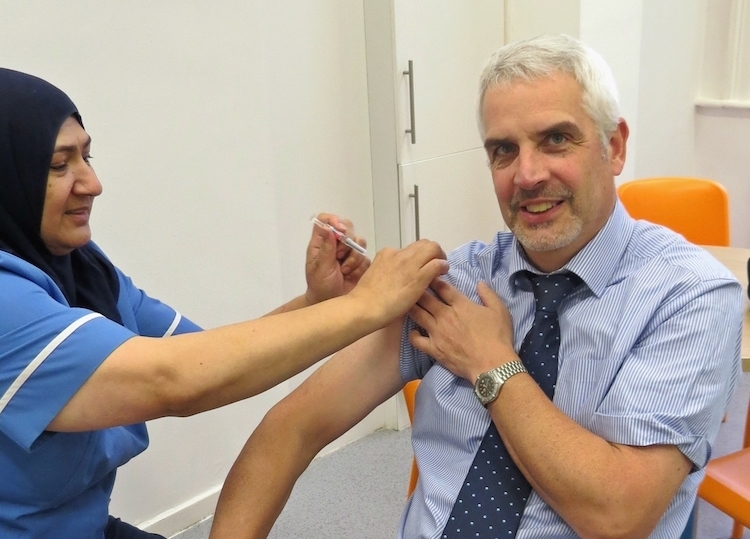
As winter approaches, the NHS in Leeds is supporting a national Met Office campaign that urges residents to be prepared to stay safe and well, whatever the weather.

The local NHS is asking people to prepare for the colder weather by taking simple steps to protect their health and that of their loved ones. In addition people are being asked to keep checking on the weather forecast and plan their journeys accordingly to reduce the risks of slips, trips and falls as well as accidents on the roads.
According to Dr Gordon Sinclair, Clinical Chair of NHS Leeds Clinical Commissioning Group (CCG) and a Headingley GP:
“Met Office research shows that two thirds of British people have been caught out by severe weather, despite 9 in 10 believing that preparing for winter weather is important – we want to make sure Leeds residents aren’t among them.
“Health and care professionals across the city have been working hard to make sure that we’re ready for winter; we need the public to prepare too.
“Cold weather brings with it bugs and viruses, many of which can be safely managed yourself. Having a flu jab is the best way to avoid one of the most prevalent and debilitating winter illnesses. These are available free of charge to anyone over 65, pregnant women, people with certain medical conditions, carers and frontline health and care workers.”
The Met Office is also urging people to prepare their homes and vehicles in case of bad weather and potential flooding or power cuts. Prepare a ‘grab bag’ of basic supplies including bottled water, medication, blankets, torches, batteries, key information and documents – don’t forget that your smartphone may not work in the event of a power cut.
Making sure your car is well maintained and carrying water, food, warm clothes or blankets, boots and a shovel also means you’ll stay safe and warm if you’re stranded by snow or a road closure. The best preparation, of course, is to check the weather and travel conditions before you set off.
Dr Gordon Sinclair adds:
“Keeping warm will help if you or any of your loved ones suffer from asthma or other respiratory conditions that can be affected with sudden drops in temperature.
“If you do become unwell, a well-stocked medicine cabinet will help you treat your symptoms yourself, but if you don’t get better after a few days or start to feel worse, call 111 if you need medical help urgently but it’s not an emergency.
“Winter weather can cause particular problems for vulnerable people so we’re also asking people to help neighbours or family members who may struggle, for example by helping with shopping if the weather is bad and making sure they’re warm.
“A lot of this is common sense but people don’t always think about preparing for severe weather when the sun is shining. We’re hoping the weather this winter won’t be as bad as some are predicting, but we want to make sure we’re all prepared if it is. So keep checking the forecasts and plan ahead to make sure you’re #weatherready.”
People are being encouraged to keep an eye out for messages being shared by the Met Office on its social media channels – Facebook (metoffice) or Twitter (@metoffice) – using #winterready
More information is available on the NHS Leeds CCG website – www.leedsccg.nhs.uk/health/healthy-living/winter-health
10 tips from the Met Office to get ready for winter
- Get your flu jab
- Top up anti-freeze screen wash, check your tyres and think about a winter kit for your car
- Consider alternative commuting plans for severe weather and alternative childcare plans in case of school or nursery closures
- Check your heating – your home should be heated to at least 18 °c
- Consider how you would access vital information if a storm takes out power and phonelines
- Think about what may be impacted by strong winds or flooding – guttering, pipes, roof tiles/slates, garden items and things stored on your ground floor.
- Check your pipes are insulated and know where your stoptap is
- Make sure you have basic supplies in case you have to leave home quickly or your power and water are disrupted
- Share this checklist with your neighbours, see if they have any other tips and tell them if you can help in severe weather
- Find out what else you can do to prepare yourself and your community for severe weather
This post is based on a press release issued by the NHS Leeds Care Commissioning Group (CCG)


